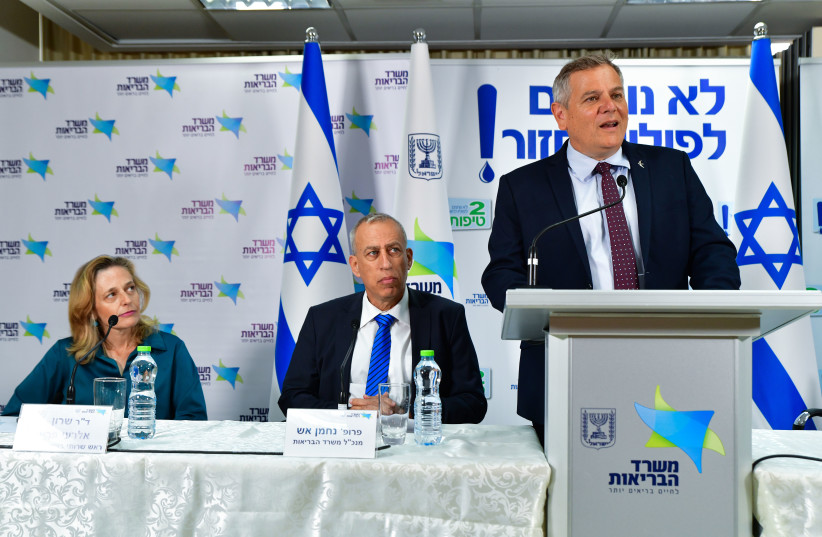The cabinet on Sunday approved a NIS 85 million plan that will allow the health funds to provide treatment for various addiction disorders for the first time.
The plan, which was initiated by the New Hope Party, creates a more accessible path to treatment for those in need. The funds will be allocated to Clalit Health Services, Maccabi Healthcare Services, Meuhedet Health Maintenance Organization and Leumit Health Care Services for them to treat addiction directly.
NIS 60m. will be allocated for the treatment of substance abuse, including alcohol, drugs and prescription medications. NIS 25m. will go toward treatment of gambling addictions.
Addiction in Israel is not currently treated under one specific service and instead is mostly outsourced to various organizations. That means treatment does not reach large parts of the target population. As a result, many people fall through the cracks and do not receive the crucial treatment they need.
The Health Ministry and the Labor, Social Affairs and Social Services Ministry operate programs to treat various addictions, including substance abuse and gambling. But they are on a much smaller scale and are not able to provide the same level of care that the health funds will be able to offer.

The Labor, Social Affairs and Social Services Ministry provides treatment for some 20,000 people annually, and the Health Ministry treats about 7,400. However, this is only a fraction of the number of people who need assistance. As many as 615,000 people struggle with addiction in some form or another, according to estimates.
During its election campaign in 2021, New Hope pledged to create and implement a plan to combat the growing phenomenon of addiction. While negotiating its entry into the coalition following the election, it demanded that it be included in the list of coalition agreements as part of a larger plan to reform mental-health services.
“In the government decision that will be made today, we are fulfilling our commitment to the public,” New Hope said Sunday shortly before the decision was finalized. “The decision will lead to an unprecedented investment in the issue, the recruitment of personnel and a more effective response that will be more efficient and accessible. Patients will be able to receive treatment with increased availability and in clinics close to their homes.”
Justice Minister Gideon Sa’ar, New Hope’s chairman, on Sunday said: “We pledged it in the election, we entered it into the coalition agreements, and today we have finally approved it: a national plan for the treatment of addiction.”
“Many Israelis suffer from an addiction that affects their lifestyle, and they do not receive treatment,” he said. “To date, the issue has not been addressed and budgeted for properly. The government’s decision... will lead to an unprecedented investment of NIS 85 million and will put an end to the suffering of patients who are currently sent to multiple organizations that treat the phenomenon without the necessary means.”
“With the implementation of the decision, patients will be able to receive treatment in available and closer clinics,” Sa’ar said. “I would like to thank Health Minister Nitzan Horowitz for his cooperation throughout.”
The decision was made following an in-depth examination of the issue of addiction in Israel, which found that there was a “lack of satisfactory response and sometimes a complete lack of necessary public services,” and that substance abuse was “not treated at all or only partially treated,” the Health Ministry said in a statement.
“Public services within the [government] ministries touch only on extreme cases, do not treat a large part of the relevant population and do not engage in early treatment and prevention at a government level,” it said.
Horowitz said: “This is the first time the state has given attention and resources to deal with the issue and help those suffering from addiction. This important program will provide an early and emergency response to patients dealing with addiction, prevent deterioration and allow many more citizens to recover from the difficult situation they have found themselves in.”
Sa’ar said addiction “is a tremendous challenge, and this important program is a huge first step that will enable it to be tackled and to improve and save the lives of many.”
![Drugs [illustrative] Drugs [illustrative]](https://images.jpost.com/image/upload/f_auto,fl_lossy/q_auto/c_fill,g_faces:center,h_720,w_1280/254302)